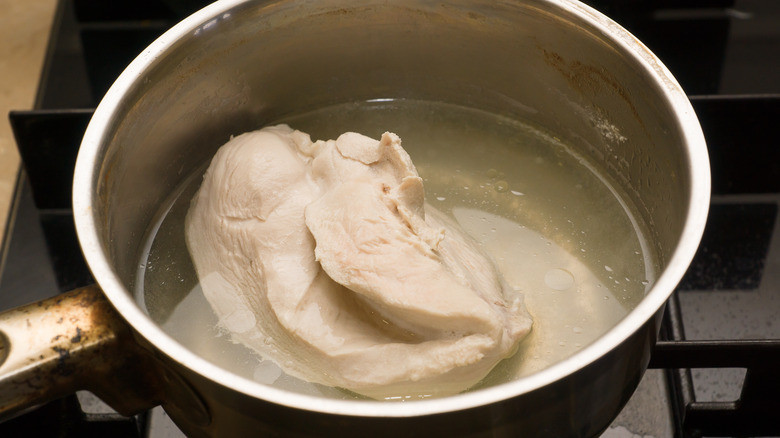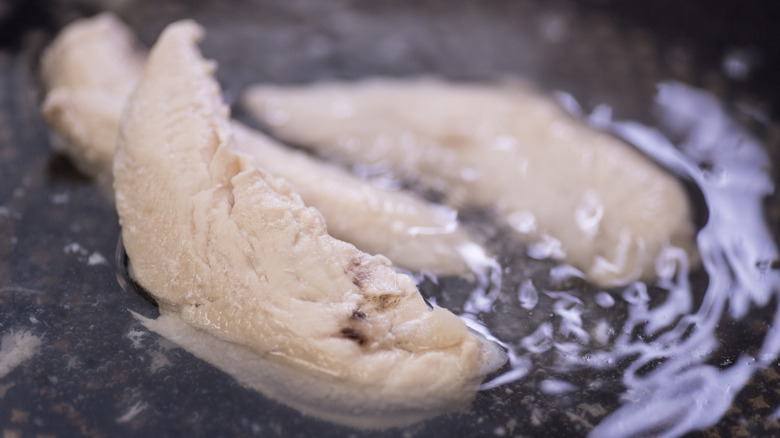The Simple Storage Tip To Keep Boiled Chicken Moist
Chicken is an all-purpose protein that can adapt to simple and elaborate meals alike. Depending on your own preferences, you can cook chicken in a multitude of ways. Roasting, frying, grilling, you get the idea. Meanwhile, boiling and poaching meat sound like two distinct methods, but these are actually more-or-less the same process. They, therefore, run into a similar problem. Namely, boiled or poached chicken tends to dry out in the fridge, resulting in a less-than-ideal texture.
Indeed, boiled poultry is easy to make but not quite as easy to preserve. You may know this firsthand, but chicken that's been boiled tends to dry up after it's been cooked. This pattern not only impacts the taste but also your meal's timeline. In theory, cooked meat can last a few days in the fridge, but why hang onto it if it's no longer moist?
Fortunately for your weeknight meals, not all hope is lost. There's one easy hack to protect your chicken's moisture and keep it texturally sound. This recommendation won't interfere with any of your tried-and-true cooking methods or techniques. Rather, this tip is all about storage.
Refrigerate your chicken in its cooking liquid
Leave the strainer on the countertop and make sure to save your chicken's liquid. Yes, it's really that simple. To prevent your boiled or poached poultry from drying out in the refrigerator, hang onto the liquid that boiled it. That liquid can be water, though stock or something with a little more oomph tends to work better for flavoring purposes. Apple cider, white wine, and fresh herbs likewise do the trick.
In fact, you may already be keeping your cooking liquid to make a stock or a soup base. If you're not saving it already, however, get in the habit of doing so. By keeping your chicken in its liquid, you'll preserve the meat's moisture and retain both its taste and texture. To make matters all the easier, the same rules for storage apply whether you cook with chicken stock, a veggie-based liquid, or use standard water.
As for how to properly pull off this trick, just remember to cool your liquid prior to storage. You don't want to refrigerate that water when it's at a boiling temperature. Exercise some patience and this trick proves both simple and easy. Plus, it takes full advantage of a liquid you already have on hand.

